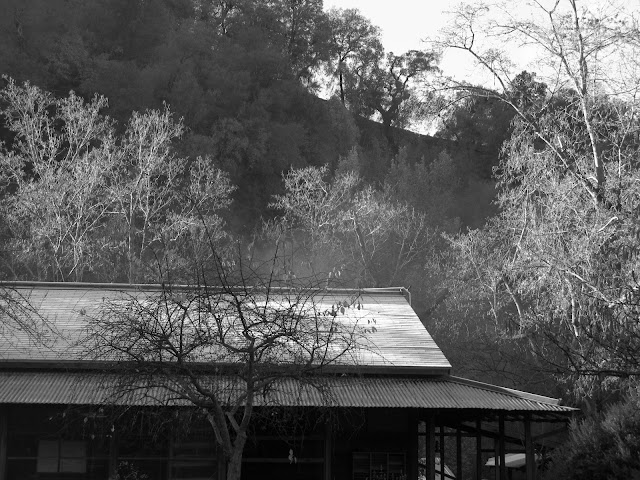When people start to practise, they inevitably put a certain amount of energy on getting the forms right; more or less, depending on their character. It is easy to get obsessed about forms, or neurotic about them, or casual or even repulsed by them. Eventually people usually settle down into a more or less mindful relationship with them.
I think I have remarked before that I was very big on getting forms right, both when I started, and when I lived at Tassajara; I think it had less to do with wanting to be praised, or not wanting to be corrected or to stand out, as I have heard others mention, but more to demonstrate that I could absorb the information and remember it. I am sure I have also written here that I had expected to spend time as ino reinforcing the correct way, which has not turned out to be the case. I have simply not wanted to play 'bad cop' all the time, calling people out and wagging fingers at them, and since there are always going to be people who haven't mastered every intricacy, I have been much more
laissez-faire than I would have thought possible.
This doesn't mean that I have lost interest in them. Yesterday, when Baker Roshi was doshi for morning service, I was paying attention to what he did, and was interested to note how he turned away from the altar.
Now, if you are not a form geek, feel free to skim rapidly over the next few paragraphs. If you like minutiae, here goes: there are two ways a priest can turn away from the altar after offering incense - clockwise and anti-clockwise. I saw both done before I was ordained, and found the anti-clockwise one more elegant; part of the reasoning behind that way is that you are keeping your right shoulder to the Buddha as you turn, which is something we read about in the sutras - I don't know the exact rationale, but it was definitely a mark of respect, and to digress slightly, it may be tied in with the reason that okesas are worn over the left shoulder only: baring the right shoulder means that you are ready to help, literally you are able to lend a hand, since your right hand is not encumbered (though as an oppressed left-handed person I would beg to differ on that one).
In any case, at City Center the priests turn clockwise, and Greg asked me to do the same after he had seen me doing the other way at evening service a few times. Clockwise is the Eiheiji style, and as Blanche often remarks in such discussions, Suzuki Roshi was an Eiheiji monk. Counter-clockwise is the Sojiji style (I will not digress as to the relative importance of the two head temples of Soto Zen in Japan, but I am sure you can look it up if you are interested), and Reb introduced this form, along with one or two other Sojiji forms, some time ago for reasons I have not heard; this means that his priests at Green Gulch have adopted the form as well. I was able to let go of my preference in this case, and follow the family style.
Thus it was interesting to see Baker Roshi do a 'Sojiji turn' in the middle of service, and I wondered if I hadn't paid enough attention to his earlier turns, but then after that he did 'Eiheiji turns'. At the service review, I remarked on this with Konin, and she pointed out some of the other forms he had done, very subtle ones which in one case I hadn't even noticed, that were consistent with the Japanese forms she had been trained in.
Funnily enough, Konin and I had recently been having a little debate about another priest form: I picked up from Paul the habit of pulling up not just my okesa, but also my koromo before I sit down on a cushion; since I recently wore a hole in the kimono I received at my tokudo, I was talking with her about getting a replacement from Japan. She did not think much of this form, saying she had been trained differently. And then I saw that Baker Roshi also pulled up his koromo so that he sat on his kimono only. Since we all happened to be in the lobby after dinner on Tuesday, I asked Baker Roshi if he had picked up this form from Suzuki Roshi. Oh yes, he replied, everybody in Japan does that - Konin begged to differ.
All of which goes to show that forms are no more fixed than anything else in this impermanent world, and as I wrote
the other day, the feeling behind them is as important as anything else. That said, it is cheaper to buy a new kimono than a new koromo, so I am sticking to that form.
I realise this may be a little arcane for many of you; don't worry, we will probably be back with Dogen tomorrow.






























